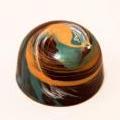-
Welcome to the eG Forums, a service of the eGullet Society for Culinary Arts & Letters. The Society is a 501(c)3 not-for-profit organization dedicated to the advancement of the culinary arts. These advertising-free forums are provided free of charge through donations from Society members. Anyone may read the forums, but to post you must create a free account.
Kosher items in non-kosher restaurants
-
Similar Content
-
- 33 replies
- 7,171 views
-
Non-Citrus Curds 1 2 3 4
By Wendy DeBord,
- 89 replies
- 31,217 views
-
- 46 replies
- 14,208 views
-
- 156 replies
- 22,035 views
-
- 312 replies
- 33,299 views
-
-
Recently Browsing 0 members
- No registered users viewing this page.




Recommended Posts